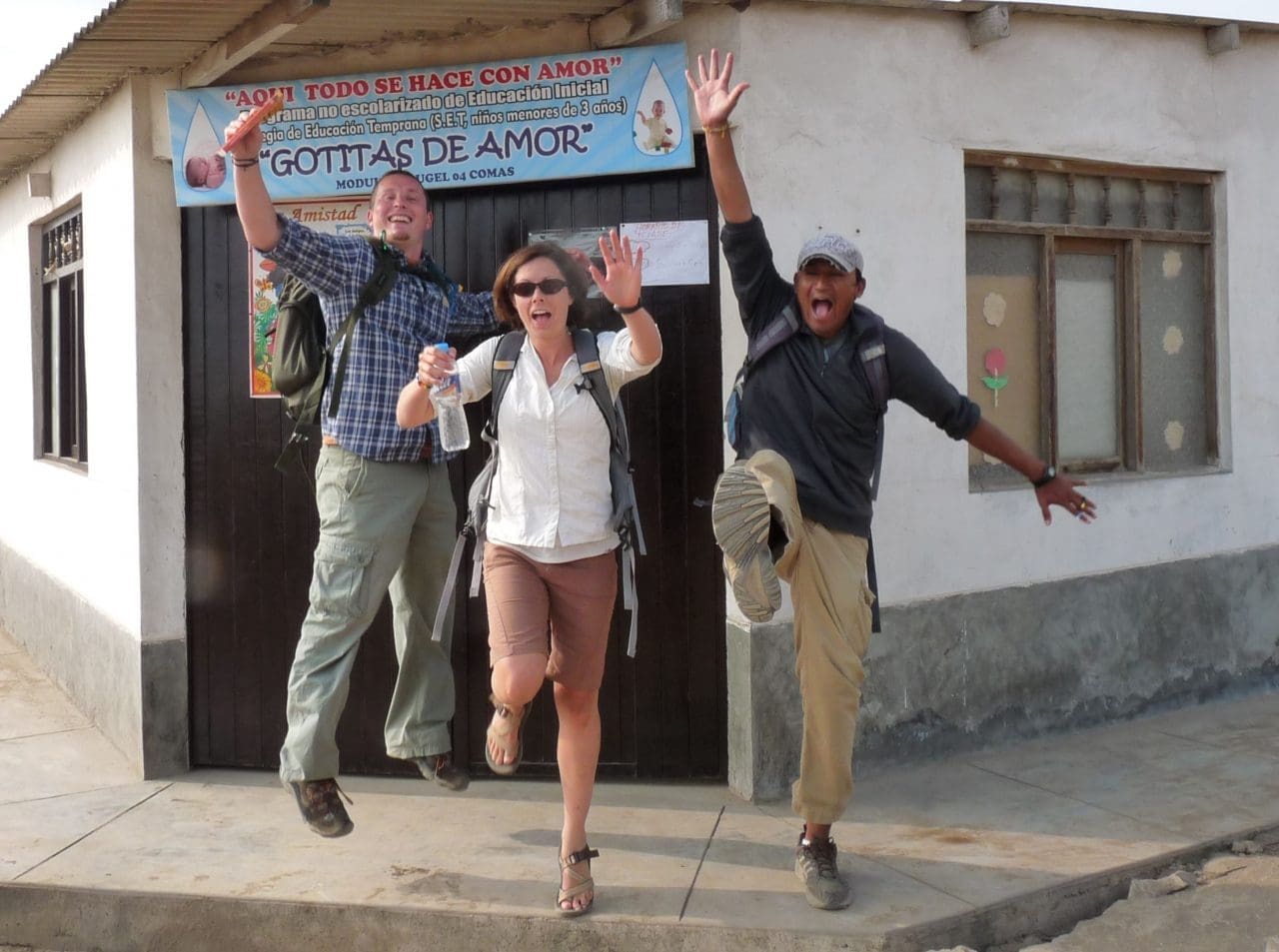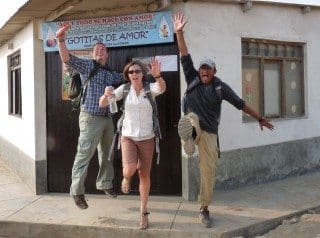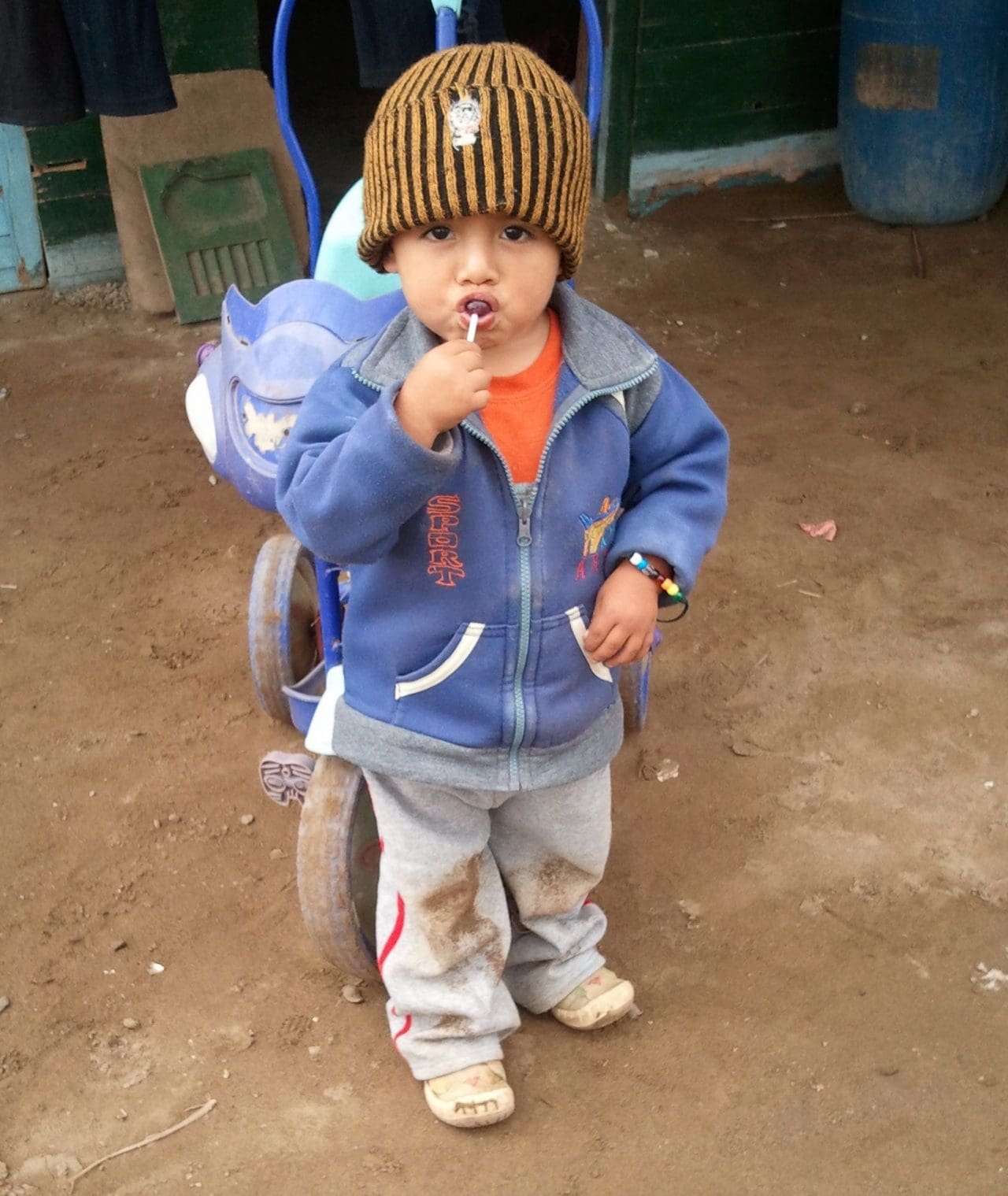[serialposts]The above picture captures how you feel. Excited, excited, excited! People, you are going on a mission trip.
You prayed. You planned. You raised support money. You researched all possible facts about your destination. You met with your mission group. You want to see God move in big ways.
You certainly don’t want to ruin your mission trip, even unintentionally.
This month we are talking about mission related topics. I’d like to introduce you to Ray.
Ray Van Cleve, knows about mission trips. Ray has spent the last year working at the La Croix New Testament Mission in Haiti. During this time, Ray witnessed the impact American volunteers have had on La Croix community.
Today, Ray is sharing about six ways to ruin a mission trip (Hello, excellent information on attitudes to avoid). Here’s Ray.
: :
Six ideas to avoid when you are serving others on a mission trip this summer:
1. I’ve seen it all:
Poverty does not have one cause that can be removed by just adding money. Poverty is a cycle people fall into, a cycle that hinders a person’s ability to provide for him or herself. There are many factors, everything from bad nutrition to a little access to education, that contribute to the cycle poverty and every community is different. In order to help someone, we have to understand why they are struggling and what has caused them to fall into poverty.
2. Give me something!:
A lack of material wealth is not the cause of poverty, it is a symptom. Those in poverty do not need handouts they need more opportunities. Just handing stuff out won’t help people come out of poverty, and in some cases it might make their long-term situation worse. Let the aim of your project be focused on helping people gain more opportunities for themselves rather than simply giving them more stuff.
3. They need to think like us:
The communities we serve may have cultural values that seem foreign or backward to us. Many times values are the fabric holding the community together. We may be tempted to combat certain cultural impulses because they impede our initiatives, but doing this without first understanding the culture’s roots within that community will make us seem elitist, killing any chance for success. We have to remember that we are trying to help real living people who are different from us.
4. I’m the first one who’s thought of this brilliant idea:
If you come to a community and think “this community really needs _____”, odds are you’re not the first person to think that, and most likely the initiative has been tried before. Look to past successes and learn from past failures. Not only will it give you insight into your intended project, it will familiarize you more with that community.
5. Look at that cute kid, get our picture!:
There will be thousands of opportunities for great photo ops. A cute picture of you playing with a small child may get a bunch of likes on Facebook, but it won’t mean anything if you’re not actually helping that child. Talk with people, understand their lives and what has caused their struggles. By building relationships you can come face to face with poverty, you can start to help a person rather than just diagnose a problem.
6. I’ll work, you pray.
Prayer is not only a time to convene with God, but it is a time for deep thought and reflection. Prayer is an opportunity to holistically think about what we do well and what needs to be improved. Prayer is a chance to recognize our faults, both in ourselves and in the work we are doing. If we spend time in prayer we will not only see where we can improve but we can find the inner peace needed to fix those flaws.
: :
A little more about the author, Ray: Part Time Writer, Part Time Adventurer. Ray is based in Pittsburgh Pennsylvania, but finds himself wandering around the world looking for places where faith, technology, and people come together and produce an interesting story. Author of the upcoming The Trouble with Candy in Haiti (from BibleDude Press). Learn more about Ray through his blog, Ray in Haiti.






Good insights, Amy.
fondly,
Glenda
Glenda,
Yes, Ray did a fabulous job with pointing us to some things we should avoid!
Nice. We encountered some of that in Costa Rica this year. Since we were the first group to go to that town, and since we’re a group of very entrpeneurial people, everyone kept finding projects they wanted to start and many things they wanted o help with. I kept saying, “Wait. They’ll tell us what they really want and need when they trust us.” It was hard, because the urge is to jump in, but it’s so worth the wait to really get the chance to partner rather than show up, help, and leave.
#7 — Thinking that you’re the first group to ever get to a particular town (or, the first white people to ever go to a village.). Trust me, you’re not. 😀
wise words!